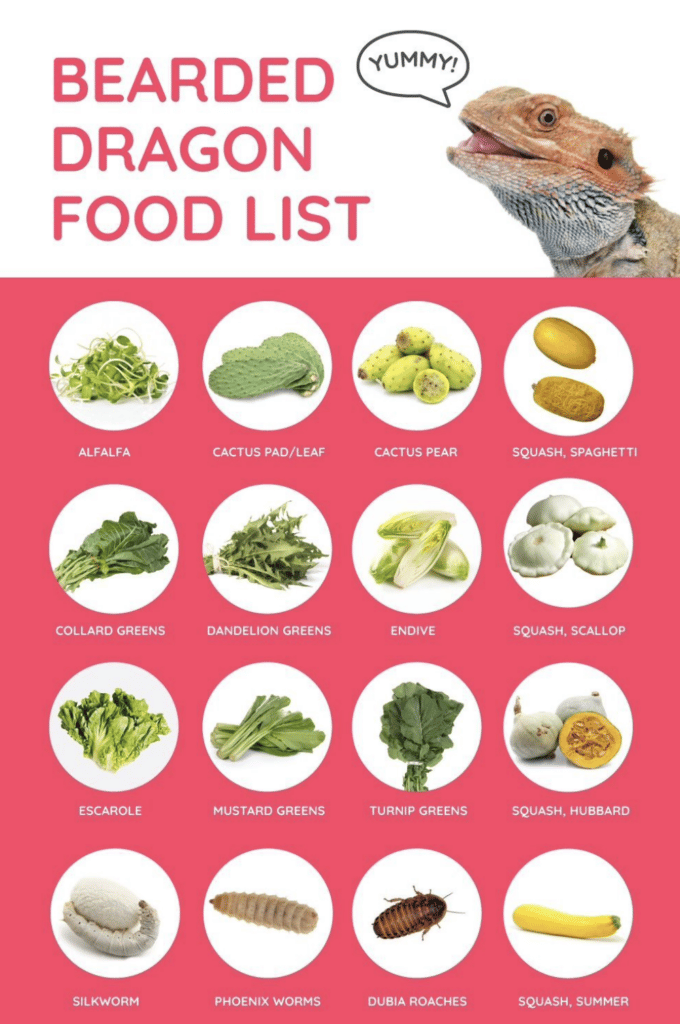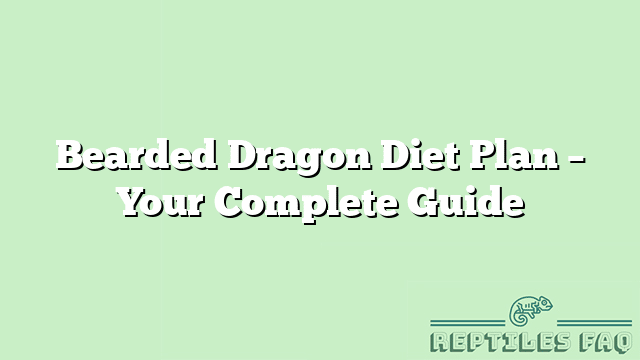Introduction: what bearded dragons eat
There are a variety of food options available for bearded dragons. In the wild, they typically eat a diet of insects and vegetables. In captivity, they can also eat a variety of fruits, vegetables, and meat.
As omnivores, bearded dragons require both protein and vegetation in their diet. A good diet for a captive bearded dragon should consist of about 50-60% vegetables/fruit and 40-50% protein.
Vegetables/Fruits: Some examples of suitable vegetables and fruits include leafy greens (e.g. collard greens, mustard greens), squash (e.g. butternut squash, zucchini), peas, green beans, carrots, apples, bananas, berries…
Food groups: vegetables, fruits, meat
Bearded dragons are omnivorous lizards that come from Australia. In the wild, they eat a variety of things including insects, small mammals, and plants. In captivity, they can be fed a diet of commercially prepared foods, vegetables, fruits, and meat.
A healthy bearded dragon diet should consist of about 20% insects, 30% vegetables, 40% fruits, and 10% meat. The insect portion can be made up of crickets, mealworms, superworms, and waxworms. The vegetables can include dark leafy greens like collard greens and turnip greens as well as squash and sweet potato. The fruit portion should be small and should include items like applesauce, mango, and papaya or even grape or tomato in small quantities. The meat component can be chicken or turkey baby food or very finely chopped meat.
Variety: the importance of variety in a bearded dragon’s diet
A bearded dragon’s diet should be varied in order to ensure they are getting all the nutrients they need. This can be accomplished by feeding them a mix of live food, vegetables, and pellets.
Live food should make up the majority of their diet as it contains the most nutrients. Crickets, roaches, and other insects are all good choices. Vegetables should be offered daily as well, and can include dark leafy greens, squash, and carrots. Bearded dragons will also eat fruit on occasion, but it should not be a regular part of their diet as it is high in sugar.
Pellets are a good way to add variety to their diet and can be offered a few times per week. They should only be given as a supplement though, as pellets do not contain all the nutrients a bearded dragon needs.
Supplements: vitamins and minerals
While there are a variety of supplements on the market, vitamins and minerals are an essential part of a bearded dragon’s diet. Vitamin A is necessary for growth, proper bone development, and good vision. Vitamin D3 aids in the absorption of calcium, which is important for strong bones and healthy muscles. Calcium is also necessary for proper nerve and muscle function.
Bearded dragons require a fat-soluble vitamin called vitamin E for a healthy immune system, reproductive function, and normal cell development. This vitamin can be found in green leafy vegetables, seeds, and nuts.
Amino acids are the building blocks of protein and are essential for growth and repair of tissue. Bearded dragons need 10 essential amino acids that must be obtained through their diet. These can be found in meat, poultry, fish, eggs, and some plants.

Feeding schedule: how often to feed your bearded dragon
A bearded dragon’s diet should consist of a variety of insects, vegetables, and fruits. They should be fed daily, with the exception of fasting days. On fasting days, they should not be given any food. The amount of food they are given depends on their size. A good rule of thumb is to give them as much food as they can eat in 15 minutes.
Bearded dragons typically eat more when they are younger and slow down as they age. Juvenile dragons will typically eat 2-3 times a day while adults only need to be fed once a day. If you notice your bearded dragon is starting to put on some extra weight, you may want to cut back on the frequency of their meals.
Fasting days are important for bearded dragons since it helps them clear out their digestive system.
Conclusion: the importance of a complete diet for bearded dragons
A complete diet for a bearded dragon is important for their overall health. A lack of nutrients can lead to health problems, so it is important to make sure they are getting everything they need. Bearded dragons are omnivores, so their diet should include both plant and animal matter. A variety of food items will provide the necessary nutrients and help keep them healthy.
Some common food items that can be fed to bearded dragons include crickets, mealworms, vegetables, and fruits. It is important to dust the insects with a calcium powder to help prevent health problems later on. The vegetables and fruits should be chopped up into small pieces so that the dragon can easily eat them. A salad mix from the pet store is a good option and should be offered daily.
Bearded dragons need a source of water available at all times.

